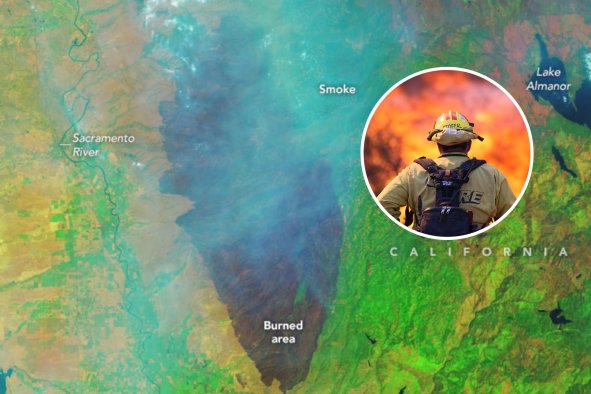A deadly horse virus is spreading rapidly across Florida, infecting more horses this year than in all of 2023.
Nineteen cases of Eastern Equine Encephalitis (EEE) have been recorded in 2024: 10 in June and three in July. There were only 17 cases in all of 2023. The virus can also infect humans, and the resultant disease can have a death rate of up to 1 in 3, according to the Centers for Disease Control and Prevention.
EEE is primarily transmitted through the bite of infected mosquitoes from the Aedes, Coquillettidia and Culex species. These mosquitoes act as a vector between birds infected with the viruses and other animals, with the virus taking up residence in their salivary glands, being injected into a human or other animal when the mosquito bites.
The virus is not spread directly between horses, from horses to humans, or from birds to humans: the mosquito is required for the disease to be transmitted, and the virus must originate from a bird, as humans and horses are considered "dead-end" hosts.
The Florida Department of Agriculture and Consumer Services Reportable Equine Disease Map reveals that three horses have tested positive for the virus in Florida's Holmes County, two have tested positive in each of Alachua, Levy, Madison, Marion, and Osceola Counties, and one has tested positive in Columbia, Duval, Highlands, Jackson, Polk, and Suwannee Counties.
In both horses and humans, the virus can be lethal. In horses, EEE can cause severe neurological symptoms, including fever, circling or head pressing, an inability to swallow, severe depression, and a lack of coordination. Up to 90 percent of infected horses die from the disease, according to UC Davis Veterinary Medicine.
"It's not common to see super mild cases," Brittany Welch, an associate veterinarian with the Equine Medical Center of Ocala, told Florida news station WCJB. "There have been reports of those horses surviving, but it's a pretty preventable disease and usually in the cases that we see, they're usually pretty significantly affected."
Only around 4 percent of humans infected with the virus develop symptoms. However, those who do may experience mild flu-like symptoms, including fever, chills, and malaise. Symptoms usually take around a week to develop after the point of infection.
In some cases, EEE can progress to a severe neurological disease, causing encephalitis (inflammation of the brain).
"Overall, only about 4–5 percent of human eastern equine encephalitis virus infections result in eastern equine encephalitis," the CDC said.
Symptoms may include high fever, headache, neck stiffness, confusion, seizures, and coma. The disease can be fatal or lead to long-term neurological complications.
"Approximately 30-45 percent of people with encephalitis caused by EEEV will die from the disease, making it one of the most serious mosquito-borne diseases in the United States," Florida Health states.
About 11 human cases of EEE are reported annually in the U.S., most of which are seen in the Southeast and along the East Coast. No cases have yet been recorded in humans in 2024.
"Eastern equine encephalitis virus transmission is most common in and around freshwater hardwood swamps in the Atlantic and Gulf Coast states and the Great Lakes region," the CDC said.
There is no specific antiviral treatment for EEE available, and care mostly focuses on relieving symptoms and managing complications. While there is no human vaccine for EEE, a vaccine is available for horses and can prevent them from becoming infected.
"The vaccine is very effective at preventing disease, so most of the time when we see cases of Triple E, it's in horses that have not received the vaccine or have been inappropriately or inadequately vaccinated," Welch said.
For humans, using insect repellents and wearing protective clothing can help prevent infection.
Do you have a tip on a science story that Newsweek should be covering? Do you have a question about viruses? Let us know via science@newsweek.com.
Disclaimer: The copyright of this article belongs to the original author. Reposting this article is solely for the purpose of information dissemination and does not constitute any investment advice. If there is any infringement, please contact us immediately. We will make corrections or deletions as necessary. Thank you.



